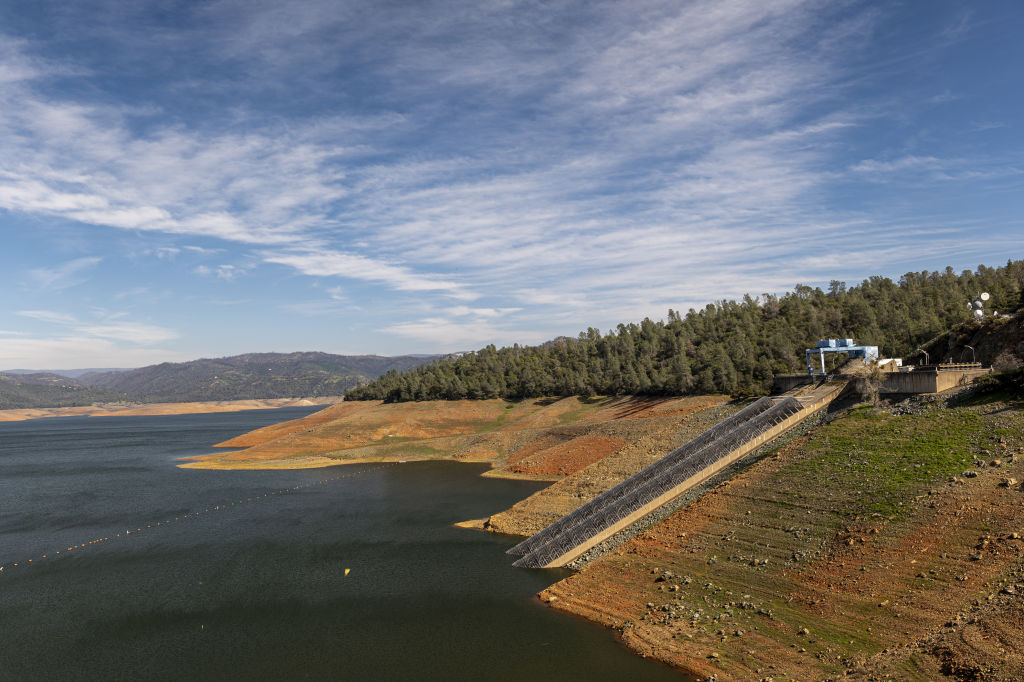Native American tribes and industry groups reach hydroelectric compromise, sending deal to Congress


A free daily email with the biggest news stories of the day – and the best features from TheWeek.com
You are now subscribed
Your newsletter sign-up was successful
At long last, Native American tribes, environmental activists, and the hydroelectric power industry have reached a deal on a legislative package that could "increase hydroelectric power production, conservation, and energy storage," The Wall Street Journal reports.
The proposed agreement arrives after four years of discussions between the various groups, who have often disagreed on issues involving "vanishing fish populations and changes to river ecosystems," the Journal writes. The growing threat of climate change, however, has brought the opponents together, helping them "find common ground to potentially expand hydroelectric power." The deal will still require congressional approval, a potentially difficult task.
Groups backing the measure include the National Hydropower Association, American Rivers, the Skokomish Tribe, Upper Skagit Indian Tribe, and the Union of Concerned Scientists.
The Week
Escape your echo chamber. Get the facts behind the news, plus analysis from multiple perspectives.

Sign up for The Week's Free Newsletters
From our morning news briefing to a weekly Good News Newsletter, get the best of The Week delivered directly to your inbox.
From our morning news briefing to a weekly Good News Newsletter, get the best of The Week delivered directly to your inbox.
In addition to other provisions, one key component of the package shifts authority from the Department of the Interior to tribes as to the conditions "put on permits for things like the protection of tribal cultural resources or fish passage," the Journal writes.
The groups involved in the deal plan to send it to Congress and the White House on Monday.
"Tribes need to be fully at the table as critical governmental agencies whose lands and resources are impacted by these projects," Mary Pavel, member of the Skokomish Tribe of Washington and law partner at firm Sonosky, Chambers, Sachse, Endreson & Perry LLP, told the Journal. "This package allows this to happen in very significant and historic ways." Read more at The Wall Street Journal.
A free daily email with the biggest news stories of the day – and the best features from TheWeek.com
Brigid Kennedy worked at The Week from 2021 to 2023 as a staff writer, junior editor and then story editor, with an interest in U.S. politics, the economy and the music industry.
-
 The world’s most romantic hotels
The world’s most romantic hotelsThe Week Recommends Treetop hideaways, secluded villas and a woodland cabin – perfect settings for Valentine’s Day
-
 Democrats push for ICE accountability
Democrats push for ICE accountabilityFeature U.S. citizens shot and violently detained by immigration agents testify at Capitol Hill hearing
-
 The price of sporting glory
The price of sporting gloryFeature The Milan-Cortina Winter Olympics kicked off this week. Will Italy regret playing host?
-
 As temperatures rise, US incomes fall
As temperatures rise, US incomes fallUnder the radar Elevated temperatures are capable of affecting the entire economy
-
 The world is entering an ‘era of water bankruptcy’
The world is entering an ‘era of water bankruptcy’The explainer Water might soon be more valuable than gold
-
 Climate change could lead to a reptile ‘sexpocalypse’
Climate change could lead to a reptile ‘sexpocalypse’Under the radar The gender gap has hit the animal kingdom
-
 The former largest iceberg is turning blue. It’s a bad sign.
The former largest iceberg is turning blue. It’s a bad sign.Under the radar It is quickly melting away
-
 How drones detected a deadly threat to Arctic whales
How drones detected a deadly threat to Arctic whalesUnder the radar Monitoring the sea in the air
-
 ‘Jumping genes’: how polar bears are rewiring their DNA to survive the warming Arctic
‘Jumping genes’: how polar bears are rewiring their DNA to survive the warming ArcticUnder the radar The species is adapting to warmer temperatures
-
 Environment breakthroughs of 2025
Environment breakthroughs of 2025In Depth Progress was made this year on carbon dioxide tracking, food waste upcycling, sodium batteries, microplastic monitoring and green concrete
-
 Crest falling: Mount Rainier and 4 other mountains are losing height
Crest falling: Mount Rainier and 4 other mountains are losing heightUnder the radar Its peak elevation is approximately 20 feet lower than it once was
